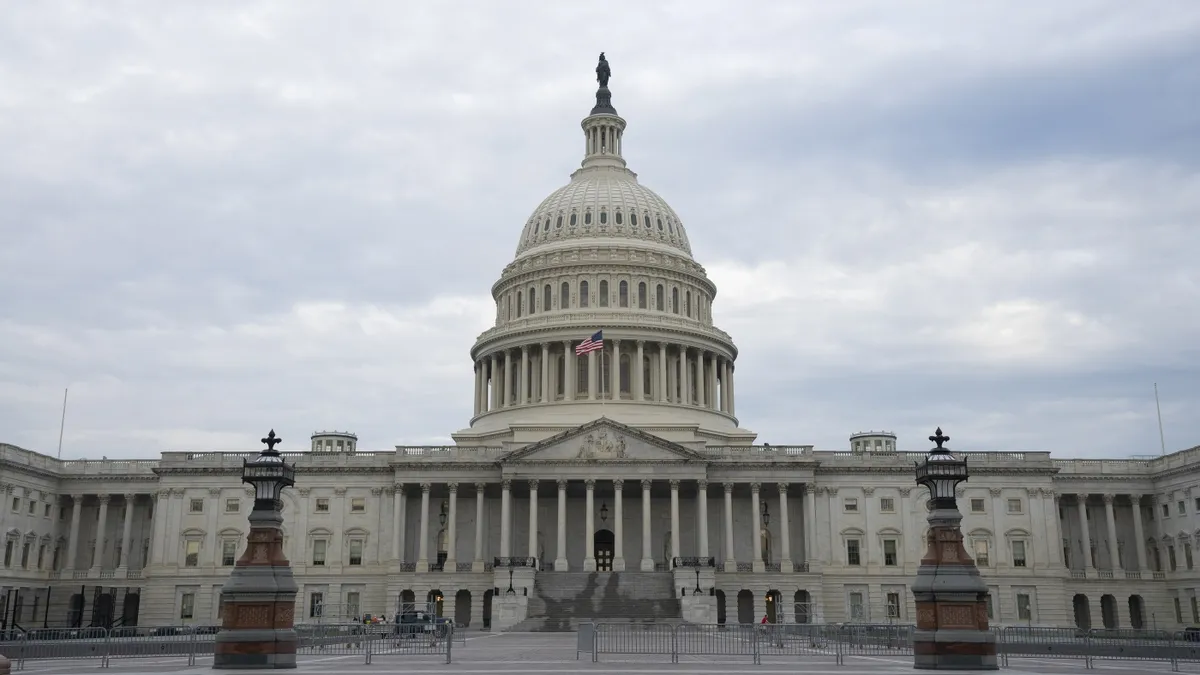
Today, the Republican-led U.S. Senate reconvenes after a recess to engage in discussions regarding President Trump's ambitious multi-trillion dollar budget bill. This proposed budget is crucial for advancing the majority of Trump's domestic policy agenda, which encompasses several significant reforms, including new work requirements for Medicaid recipients, increased funding for immigration enforcement, a comprehensive overhaul of the student loan system, and the elimination of tax breaks for clean energy.
Ron Bonjean, a Republican strategist affiliated with the bipartisan public relations agency ROKK Solutions and a former spokesman for Senate Majority Leader Trent Lott, possesses a deep understanding of the reconciliation process in the Senate. In an interview with NPR's Steve Inskeep, Bonjean expressed confidence that despite anticipated resistance from a few Republican senators, he expects the bill to ultimately receive approval. He elaborated on how Trump's presidency is reshaping the legislative landscape.
Inskeep noted that traditionally, Senate Republicans have been viewed as more moderate compared to their House counterparts, who often pursue more ideological or partisan agendas. Bonjean acknowledged that while this dynamic generally holds true, the current political climate under President Trump has introduced new pressures on Republican senators. He emphasized the urgency to act, particularly in light of the upcoming need to raise the debt ceiling by August to avoid a potential default—an unprecedented occurrence in American history.
Despite the momentum, Bonjean recognized that some senators have voiced concerns regarding the bill. For instance, Senator Josh Hawley has opposed the proposed cuts to Medicaid, arguing that if the Republican Party aspires to be the party of the working class, it must also support the working class. Additionally, Senator Rand Paul has expressed apprehensions about increasing the national debt while simultaneously raising the debt ceiling.
Bonjean explained that the discussions surrounding deficit reductions and spending cuts are particularly cerebral and may not resonate with immediate concerns of Americans. He indicated that the debate over Medicaid could emerge as a significant hurdle, with Senators like Susan Collins, Josh Hawley, and Thom Tillis expressing their reservations. However, he remains optimistic that the bill will eventually pass once any outstanding issues are resolved.
As the discussion shifts to the financial implications of the budget bill, Inskeep queried about the potential removal of tax breaks for clean energy, noting that some of these incentives have benefited red states. Bonjean acknowledged the complexity of reinstating such provisions, particularly given the $550 billion allocated for clean energy tax credits. He pointed out that four Senate Republicans—Lisa Murkowski, Thom Tillis, John Curtis, and Jerry Moran—have publicly opposed a complete repeal of these credits, setting the stage for a contentious debate.
Another critical topic raised during the interview was the potential for higher taxes on the wealthy. Although President Trump has previously indicated support for increasing taxes on high earners, Bonjean believes that the current Republican sentiment leans against raising tax rates on the affluent. He noted that while Trump had proposed a new tax bracket for those earning over $2.5 million, this suggestion did not gain traction in the House.
Lastly, the conversation touched on the sensitive issue of Medicaid cuts and public perceptions surrounding them. Republican Senator Joni Ernst faced backlash for her comment at a town hall meeting suggesting that some people would die as a result of Medicaid cuts. Bonjean remarked that while her statement was factually accurate, it was not politically advantageous and highlighted the delicate nature of discussing healthcare reforms.
As the Senate debates this significant budget bill, the outcomes will undoubtedly shape the future of various domestic policies and reflect the evolving dynamics within the Republican Party.